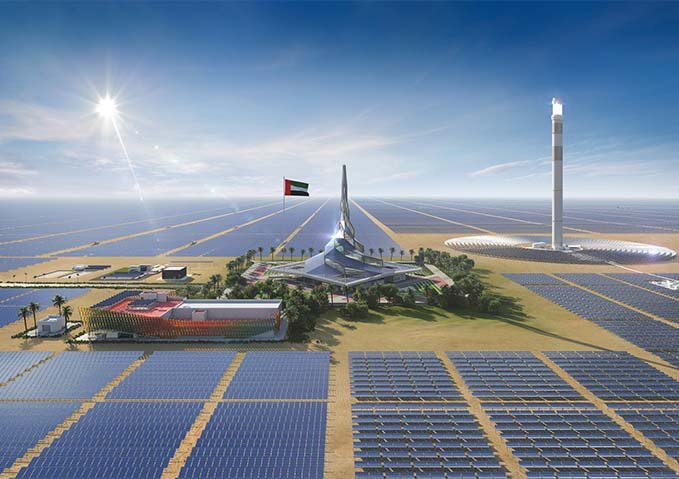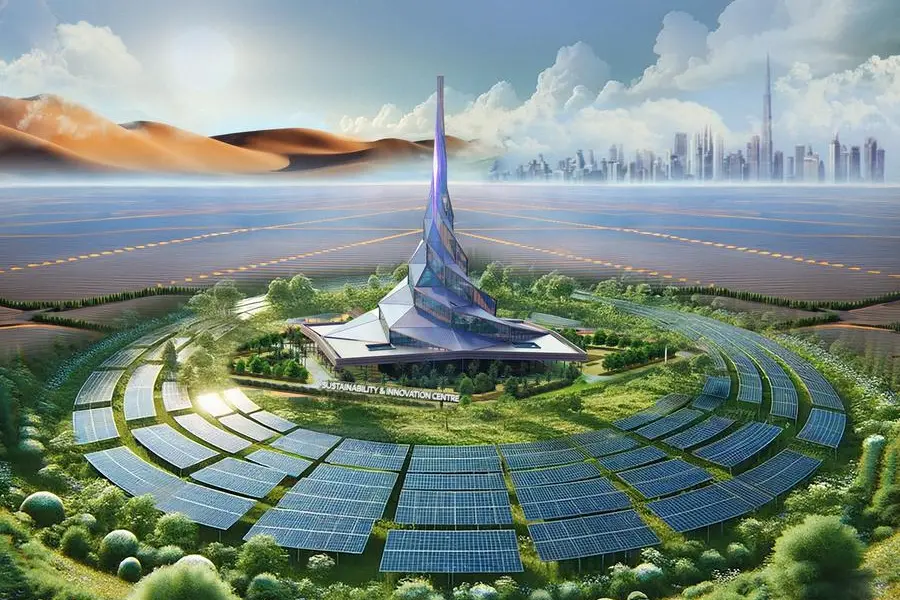Dubai Electricity and Water Authority (DEWA) has made a major stride in clean energy by adding 800 megawatts (MW) to Dubai’s power grid in 2025. This significant boost comes through the Mohammed bin Rashid Al Maktoum Solar Park, a world-class renewable energy project located in Dubai’s desert.
This move aligns perfectly with Dubai’s Clean Energy Strategy 2050 and the Net Zero Carbon Emissions Strategy 2050, both of which target making Dubai’s energy fully clean and sustainable by mid-century. The addition of this new capacity means Dubai is closer than ever to its ambitious green goals.
Clean Energy Capacity 2025 Marks a New Era for Dubai’s Power
Adding 800MW of clean energy capacity in 2025 represents a new chapter for Dubai. Now, DEWA’s total power generation capacity has reached 15,117 MW, of which 2,860 MW comes from renewable and clean sources like solar. This means nearly one-fifth of Dubai’s energy comes from clean sources—a remarkable achievement for a city known for its rapid growth and heavy energy demand.

This year’s addition comes from two main phases of the solar park:
- Phase 5: A 300MW photovoltaic (PV) solar plant that uses advanced solar panels to capture sunlight efficiently.
- Phase 6: A 500MW PV solar plant that uses cutting-edge technology for even higher performance.
Together, these projects show how Dubai is harnessing the power of the sun to meet growing energy needs sustainably.
The Mohammed bin Rashid Al Maktoum Solar Park: A Global Leader
The solar park is the largest single-site solar energy project in the world. It covers a vast area in Dubai’s desert and is designed using the Independent Power Producer (IPP) model. This means private companies help finance and operate parts of the project alongside DEWA, sharing expertise and resources.
Once complete, the solar park aims to reach a total capacity of 5,000 MW by 2030. This will not only provide clean power to millions but also serve as a symbol of Dubai’s commitment to sustainability.
Why the Solar Park is Vital for Dubai’s Future

The importance of the solar park goes beyond its size. It is a key pillar in reducing Dubai’s carbon emissions and dependence on fossil fuels. The park helps Dubai:
- Attract investment in renewable energy
- Reduce reliance on gas and oil for electricity
- Cut harmful emissions from power generation
- Serve as a renewable energy model for the Middle East and beyond
Using technologies like bifacial solar panels, which capture sunlight on both sides, and solar trackers that follow the sun’s path, the solar park maximizes energy production even in harsh desert conditions.
How Clean Energy Capacity 2025 Benefits the Environment and Economy
Increasing clean energy capacity is vital for fighting climate change. With more solar power in its grid, Dubai reduces millions of tons of carbon dioxide emissions each year. In 2024 alone, Dubai avoided about 2.4 million tonnes of CO₂ thanks to renewable energy sources.
The clean energy push also creates many new jobs in construction, operation, and maintenance of renewable facilities. It diversifies Dubai’s economy by reducing its dependence on oil revenues and prepares the city for a sustainable future.
Public-Private Partnerships Power DEWA’s Progress
One of the reasons DEWA can add clean energy capacity so quickly is its public-private partnership model. This model invites private companies to invest in and build parts of the solar park. For example, the 300MW fifth phase was developed by a consortium led by ACWA Power, a leading company in renewable energy.
Such partnerships bring in international funding and technical know-how. This approach reduces costs for Dubai and accelerates the rollout of solar energy projects.
Tackling Energy Storage: The Next Challenge
Solar energy works when the sun shines, but storing that energy for use at night or on cloudy days is critical. DEWA is investing in different storage technologies to solve this.
One major project is the pumped-storage hydroelectric plant in Hatta. This system stores energy by pumping water uphill during sunny hours, then releases it to generate electricity when needed. DEWA is also exploring advanced battery systems to store and stabilize solar power.
Additionally, DEWA’s research and development center at the solar park focuses on improving energy storage, smart grids, and solar panel technology.
Dubai’s Clean Energy Vision for 2030 and Beyond
The 800MW boost in clean energy capacity is just the beginning. DEWA’s long-term plan is part of the Dubai Clean Energy Strategy 2050, which aims for:
- 25% clean energy by 2030
- 75% clean energy by 2040
- 100% clean energy by 2050
Meeting these goals means expanding solar, wind, and other renewable sources, investing in new technologies, and transforming Dubai’s power grid into a smart, efficient system.
How Residents Benefit From Growing Clean Energy
As Dubai’s clean energy capacity increases, residents enjoy cleaner air and more stable electricity costs. The city is also becoming a more attractive place to live and work for people who value sustainability.
DEWA is planning programs to encourage solar panels on rooftops for homes and businesses. Other plans include more electric vehicle charging stations, smart meters to track energy use, and incentives for energy efficiency.
By 2030, Dubai hopes to be one of the cities with the lowest carbon footprints worldwide.
Dubai Sets an Example for the World

Dubai’s rapid growth in clean energy capacity shows how even fast-developing cities in hot climates can lead the world in renewable energy. The Mohammed bin Rashid Al Maktoum Solar Park is proof that solar power can be scaled up to meet huge energy demands.
DEWA’s strategy of combining government vision, technology, and private investment offers a roadmap for other countries aiming to reduce emissions and shift to cleaner energy.
Conclusion: A Bright and Clean Future
DEWA’s addition of 800MW of clean energy capacity in 2025 through the solar park is a major step for Dubai and the region. It strengthens Dubai’s position as a leader in clean technology and sustainability.
As the solar park continues to expand and more innovative energy solutions come online, Dubai moves closer to a future powered entirely by clean energy — a future that is better for the planet and its people.
Do follow UAE Stories on Instagram
Read More: Saudi Arabia GDP Growth Beats Forecasts With Strong First Quarter













